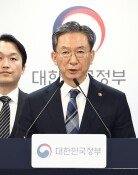[Opinion] US Policy Towards the Middle-East Stands at the Crossroads
[Opinion] US Policy Towards the Middle-East Stands at the Crossroads
Posted September. 13, 2001 08:26,
![[Opinion] US Policy Towards the Middle-East Stands at the Crossroads](https://dimg.donga.com/egc/CDB/ENGLISH/Article/20/01/09/13/2001091313128.jpg)
The US is experiencing its national disaster from the worst terror attack since its civil war. Terror attacks that occurred almost simultaneously in several places including its largest city, New York, and its capital, Washington, could very well be described as a national crisis.
From the standpoint of the US, their subsequent concern and analysis will revolve around settling the situation and for an extended time around its foreign and domestic policy in their dealing with its Middle-Eastern policy.
First, there is the question of whether in view of the recently escalating crisis in the Middle East such disaster was not to some degree foreseeable. This is to say, in view of the current state of affairs, this large scale terror attack on the US has both direct and indirect connection with the exacerbating situation in the Middle East. In other words, it is not without reason that the US press sees the attackers as members of a Muslim militant group.
While there were signs of tensions resurfacing in the Middle East since September last year, it was the major victory of the hard-liner Ariel Sharon, who became the Prime Minister of Israel, that really worsened the situation. Prime Minister Sharon has pursed a policy of power in accordance with his belief that `the only way to engage in Middle-Eastern politics is not diplomacy but military power` On the other hand, Arafat, the leader of the Palestinian autonomous government, lost the right of speech after having failed in the peace talks with Israel, while two hard-liners within the Palestinian government, the Democratic Liberation Front and the People`s Liberation Front gained considerable power. The result was the assumption of power by hard-liners in both regions. Thus the two sides have suffered five hundred casualties in the past eleven months, and the death last month of Mustafa, the leader of the People`s Front of Liberation in Palestine (PFLP), by a missile attack from Israel`s US made Appachi helicopter aggravated the whole situation.
In retaliation, Muslim hard-liners have not only made terror attacks on Israel, but also imposed several bomb attacks on the US, Israel`s `political sponsor` A representative case was the bombing of US embassies in Kenya and Tanzania in August 1988, which killed two hundred people and injured five thousand people. During the judgment of the suspect behind the May bombing of the US embassy, the US Federal Court identified Osama Bin Laden, a Saudi Arabian, as the figure behind the anti-US terror attack. In response to this accusation, Ben Laden warned of an `amazing event` that will occur within a few weeks after June 25th. The most recent incident in which the US angered the Muslim hard-liners occurred during the World Conference for the Dissolution of Racial Discrimination held in South Africa, where it withdrew its representatives along with those of Israel when confronted with the proposition to denounce Israel`s Zionism. From this standpoint, America`s greatest dilemma in its policy against the Middle East is whether it will choose to maintain its pro-Israel policy hand-in-hand with Sharon`s government along with its aggressive anti-Middle East policy, or opt for a more moderate reconciliation policy.
Secondly, in connection with the Military Defense plan, the greatest current US military security issue, the Democratic Party`s opposing voice can gain more weight, thus leading to intensified talks concerning the reduction of the MD budget. That is to say, in accordance with what the Democratic Party along with other press have been contending, the argument that rather than spending billions of dollars against unreal dangers, America should prepare itself against more realistic dangers such as dangers arising from biochemical weapons and explosives through conventional methods is gaining credibility.
Accordingly, although the US Senate Armed Forces Committee has reduced the MD budget by one hundred thirty billion dollars, additional reduction or at least an increase will no longer be easy.
Thirdly, issues concerning America`s unchallenged capability of gathering intelligence-related information such as the `theory of Eshel` along with the responsibility of maintaining close communication between security information institutions could be raised in the Congress. Not long ago, the head of the Federal Intelligence Agency (FBI) was replaced when it was made know that one of its agents was acting as a double spy. This incident certainly seems to have laid the foundation for a full-scale reorganization of the personnel. However the problem lies in the fact that even modern scientific detecting techniques are not always successful in identifying terror attack plots that are carried out in secret based on religious beliefs that match well with the word `Zihard (Temple)`.
Lastly, it appears that the future basic duty of the military will involve relatively more attention to `Operations Outisde of The War` (OOTW), as seen, for example, in this terror incident rather than preparing against major wars. America has been conducting research in this area for several years now, but the recent increase in `unconventional security issues` such as terror, drug trade, and international organized crimes is forcing the military to become more actively involved in finding ways to resolve the issues.







